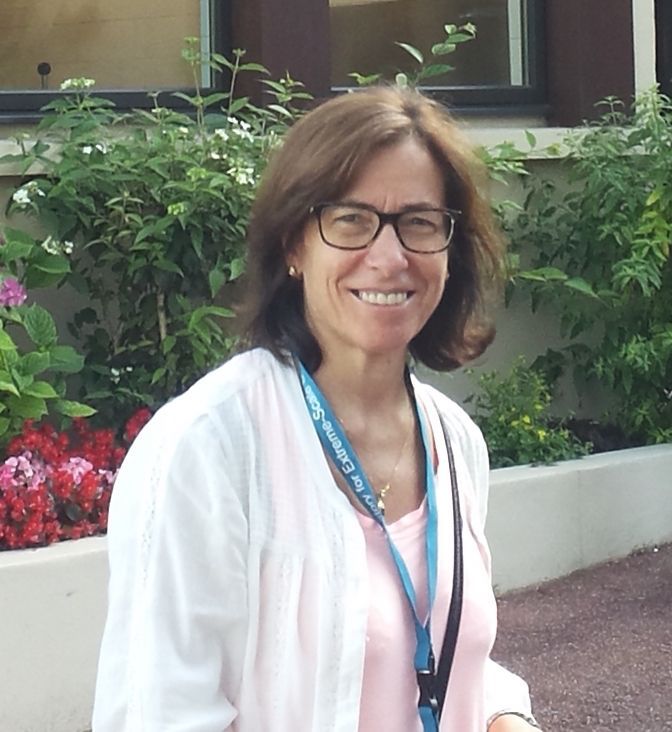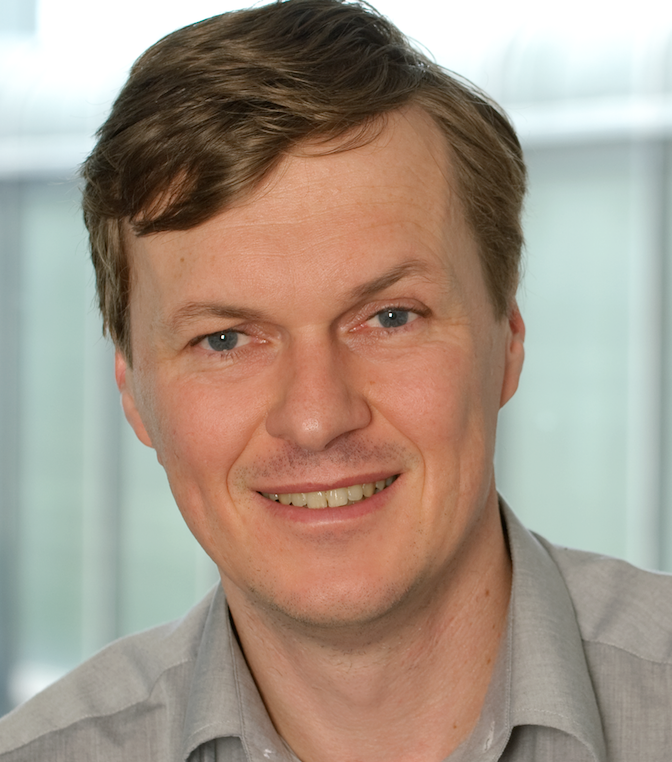Keynotes
Michela Taufer: Scientific Applications and Heterogeneous Architectures – Data Analytics and the Intersection of HPC and Edge Computing
Rosa M. Badia: Complex workflows development in distributed computing infrastructures
Helmut Grubmüller: Nanomachines at Work: Atomistic Simulations of Biomolecular Systems
Michela Taufer

Jack Dongarra Professor in High Performance Computing
Department of Electrical Engineering and Computer Science
The University of Tennessee Knoxville
Date: Wednesday 28.08.2019, 09:00 - 10:00
Location: Alte Mensa, Room 2 (Adam-von-Trott-Saal)
Scientific Applications and Heterogeneous Architectures – Data Analytics and the Intersection of HPC and Edge Computing
Slides
Contact taufer@utk.edu
Web https://globalcomputing.group/about.html
Research Focus
Michela Taufer is an ACM Distinguished Scientist and holds the Jack Dongarra Professorship in High Performance Computing in the Department of Electrical Engineering and Computer Science at the University of Tennessee Knoxville (UTK). She has a long history of interdisciplinary work with scientists. Her research interests include software applications and their advance programmability in heterogeneous computing (i.e., multi-core platforms and GPUs); cloud computing and volunteer computing; and performance analysis, modeling and optimization of multi-scale applications. She has been serving as the principal investigator of several NSF collaborative projects. She also has significant experience in mentoring a diverse population of students on interdisciplinary research. Michela's training expertise includes efforts to spread high-performance computing participation in undergraduate education and research as well as efforts to increase the interest and participation of diverse populations in interdisciplinary studies.
Biography
Michela Taufer earned her undergraduate degrees in Computer Engineering from the University of Padova (Italy) and her doctoral degree in Computer Science from the Swiss Federal Institute of Technology or ETH (Switzerland). From 2003 to 2004 she was a La Jolla Interfaces in Science Training Program (LJIS) Postdoctoral Fellow at the University of California San Diego (UCSD) and The Scripps Research Institute (TSRI), where she worked on interdisciplinary projects in computer systems and computational chemistry.
Rosa M. Badia

Workflows and Distributed Computing Group
Department for Computer Science
Barcelona Supercomputing Center
Date: Thursday 29.08.2019, 09:00 - 10:00
Location: Alte Mensa, Room 2 (Adam-von-Trott-Saal)
Complex workflows development in distributed computing infrastructures
Slides
Contact rosa.m.badia@bsc.es
Web https://www.bsc.es/badia-rosa-m
Research Focus
The group led by Dr. Badia has been developing StarSs programming model for more than 10 years, with a high success in adoption by application developers. Currently the group focuses its efforts in PyCOMPSs/COMPSs, an instance of the programming model for distributed computing including Cloud. The group is extending the model to be able to consider edge devices that offload computing to the fog and to the cloud. Dr Badia has published near 200 papers in international conferences and journals in the topics of her research. Her group is very active in projects funded by the European Commission and in contracts with industry.
Biography
Rosa M. Badia holds a PhD on Computer Science (1994) from the Technical University of Catalonia (UPC).
She is the manager of the Workflows and Distributed Computing research group at the Barcelona Supercomputing Center (BSC).
Her current research interest are programming models for complex platforms (from edge, fog, to Clouds and large HPC systems).
Helmut Grubmüller

Department of Theoretical and Computational Biophysics
Max Planck Institute for Biophysical Chemistry, Göttingen and
Georg August University Göttingen, Department of Physics
Date: Friday 30.08.2019, 09:00 - 10:00
Location: Alte Mensa, Room 2 (Adam-von-Trott-Saal)
Nanomachines at Work: Atomistic Simulations of Biomolecular Systems
Slides
Contact hgrubmu@gwdg.de
Web https://www.mpibpc.mpg.de/grubmueller
Research Focus
Helmut Grubmüller's research aims at an understanding of the physics and function of proteins, protein complexes, and other biomolecular structures at the atomic level.
Questions addressed are:
- How do particular proteins perform their function?
- What is the underlying mechanism of these »nano machines«?
- How can we theoretically describe these highly complex and irregular biomolecules as many-body-systems efficiently and properly?
For this purpose, complex computer simulations of the atomistic dynamics are carried out, and new statistical mechanics concepts and efficient parallel simulation algorithms and codes are being developed in Grubmüller's Department.
Biography
Helmut Grubmüller graduated in physics at TU Munich in 1990 followed by research stays at University of Illinois at Urbana-Champaign and CENG Grenoble in 1990 and 1991. In 1994 he obtained his PhD at the TU Munich. From 1994 until 1998 he was postdoctoral fellow at Univ. Munich, and in 1997 short term EMBO fellow at ETH Zurich. From 1998 until 2003 Helmut Grubmüller was head of an independent research group at the Planck Institute for Biophysical Chemistry, Göttingen. 2002 he habilitated in physics at the Georg August University Göttingen. Since 2003 he is Director at the Max Planck Institute for Biophysical Chemistry, Göttingen, and Scientific Member of the Max Planck Society. Since 2005 he is Honorary Professor of Physics at the Georg August University Göttingen.